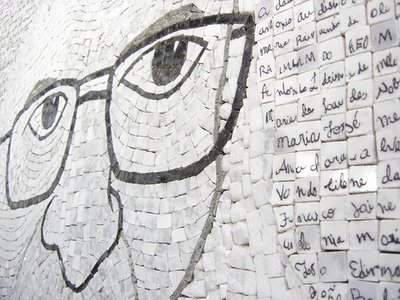Serendip is an independent site partnering with faculty at multiple colleges and universities around the world. Happy exploring!
PCSJS Meetings


When I think back to the Peace, Conflict, and Social Justice Studies Concentration meetings I’ve been a part of over the last few semesters, I am not sure what to what to make of them. The twice-per-term meetings were an important part of being in the Concentration, and served the obvious purpose of helping us all figure out the logistics of choosing classes and thinking about our portfolios. But, beyond that, I’m still figuring out exactly what their purpose was. Given the focus of the concentration, part of me had expected that we’d all go into the room and figure out how to start tackling some of the most pressing human rights concerns of the era. Needless to say, our meetings were not quite so generative, but they did still feel like they were a part of a larger project or journey. As scholars of peace – or at least students of the discipline – I do think that we all probably have a lot of insight about the field, and about how to avoid war and conflict. But, even though our discussions were often more personal than academic, I do think that they played a role in the larger quest for peace.
While our concentration meeting discussions did not necessarily always fall under the rubric of “Peace and Conflict Studies,” they did seem to be a kind of peace education. As I learned about in both my 360, and Intro to Peace and Conflict Studies, dialogue in and of itself can be an important pedagogical tool to learn and teach peace. In particular, I am very much intrigued by Paulo Freire's ideas of “liberatory dialogue,” and how consciousness raising can lead to peaceful behavior. The kinds of democratic communication we have within our PCSJS concentration meetings thwarts traditional ideas of domination (including within the educator/student relationship), and I think has stood as an example to help me understand how discourse alone can be transformative. Because dialogical education is a social undertaking, we often refer to the needs and successes of the whole group of concentrations, rather than our own individual needs, which I think can easily be translated to thinking about society at-large. For instance, at one of the first meetings I attended, one of my classmates expressed how upset she felt that fellow students were not becoming involved with the Occupy movement, citing academic responsibilities as taking up too much of their time. The way we all approached our fellow classmate’s concern was through discussion of why people feel this way, what can (or should) be done about it, and what it means for our community. So, while we might not be talking about how to beget world peace, we are coming together as a collective and changing educational paradigms.


Comments
Post new comment